“You’re crazy.”
The text, mixing equal parts ‘right on’ and ‘why would you do that?’, comes from my mate Maria, in response to a photo I’ve sent her.
It shows myself and fellow reporter Poppy Watson, rashed with cold and fresh from the frigid waters of East Sands, grinning our heads off.
I’ve been doing this for about eight months now, after a warm welcome from the St Andrews Swimmers helped me take the plunge.

And Maria’s right enough – we do look crazy, with our totally chic combo of swimming costumes and woollen hats, shivering on the gloomy grey sand on a January Saturday.
The furtive looks shared between passers-by tell the same story, and it would be easy to feel self-conscious if I wasn’t so busy feeling invincible.
Because that’s how sea swimming makes me feel: invincible.
And that’s no small feat for someone whose body has been pulling the rug out from underneath her for two weeks out of every month for the last 16 years.
Pre-menstrual mayhem made me truly ‘crazy’
It’s well documented, by misogynistic podcasters and Victorian doctors alike, that periods make women ‘crazy’.
And while I don’t endorse the idea that any valid negative emotion a woman exhibits means “she must be PMS-ing”, I have to admit that in my own case, the mood swings and anxiety brought on by my monthly cycle are extreme, and have been debilitating at points in my life.
I’m not talking about a wee greet at the Dogs Trust advert or snapping at my mum over the phone.
For up to a fortnight each month, I used to be plagued by sleep-depriving spirals of anxious thinking, convincing myself my friends secretly hated me, or that I was going to lose my job.
I suffered a pervasive low mood which meant the smallest trigger – a slightly altered tone of voice, a good song, a nostalgic smell – could reduce me to a tearful mess, regardless of where I was, or who I was with.
I would feel pathetic, out of control, and exhausted with myself.
I’ve lost count of the number of times I’ve asked my own tear-stained reflection: “Why are you being crazy?”
Then I’d get my period, and wonder what the hell I’d been crying for. It was like a switch would flip and my mind would be clear…
…for the next two weeks, until the fog descended again. And on and on we went.
No longer hostage to my hormones
I tried everything to get my pre-menstrual mania under control: pills and potions, yoga and yoghurts. Nothing worked – until I started swimming.
In the water, I feel both blinded by fear and numb to it. My nerves, alert to the very real sensation of the cold, have no capacity to be fried by the imaginary scenarios in my head.
As my skin flames with the freezing water and my core starts to burn like a furnace, my body finally catches up with the chronic survival mode of my mind.
And then after a few minutes, a small miracle occurs.
My breathing gets slow and deep. My body adjusts to the cold as my vagus nerve gets its act together. And, like putting on glasses for the first time, I can see my thoughts in clear focus, marching in orderly lines, one after the other.
I’ve not died. I’m swimming. I’m invincible.
And over the course of the last eight months, during which I’ve strived to swim in cold water at least once a week, I’ve found myself carrying that post-sea stress relief into my daily life.
Cold water swimming proven to help menstrual symptoms
My manic mind is no longer any match for my resilient body, which can cope with way more physical distress in the water than my kamikazeing hormones can muster.
My mental clarity is sharper too, which means that even when my mood starts to dip and I feel myself slipping into the depths of despair, I have the presence of mind to know I’m not really drowning – it’s just a chemical flood.
The good news is, this link between cold water swimming and symptom relief isn’t just my subjective experience; science says so too.
A study of more than 1,000 women, released yesterday by University College London, has concluded that cold water swimming can help alleviate the mental and physical symptoms of menopause and menstruation – including hot flushes, anxiety, mood swings, trouble sleeping, and irritability.
Almost half (47%) of the women reported that cold water swimming lessened their anxiety, and more than a third (38%) saying it had given them more control over their mood swings.
Game-changer for women’s health?
For anyone in cold water or wild swimming group, this news will come as no surprise. Though it’s by no means an exclusively female sport, there’s an overwhelming majority of women finding solace in the sea.
But this study could be a game-changer for holistic women’s healthcare, as the study’s lead author, Prof Joyce Harper, points out its potential to offer an “alternative solution” to women struggling with menopause and menstrual symptoms.
I can only speak for myself, but in my case, the link between cold water and relief from cyclical craziness couldn’t be more obvious.
My pals might think I’m mad, but cold water swimming has given me the sanest eight months of my life.
Cold water swimming comes with health risks. Before getting in the water, consult the RNLI’s safety advice.
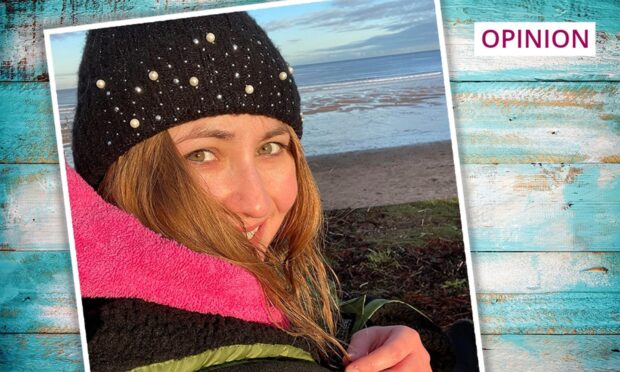
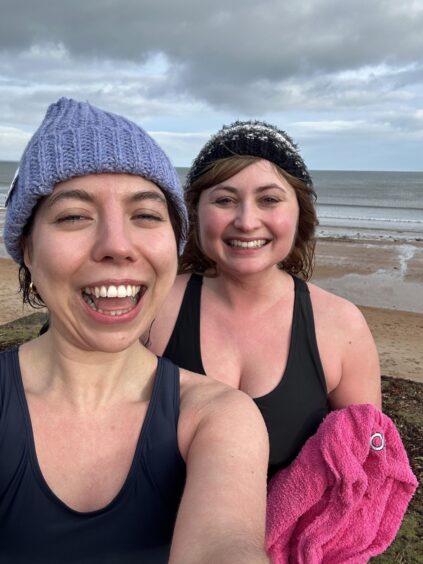
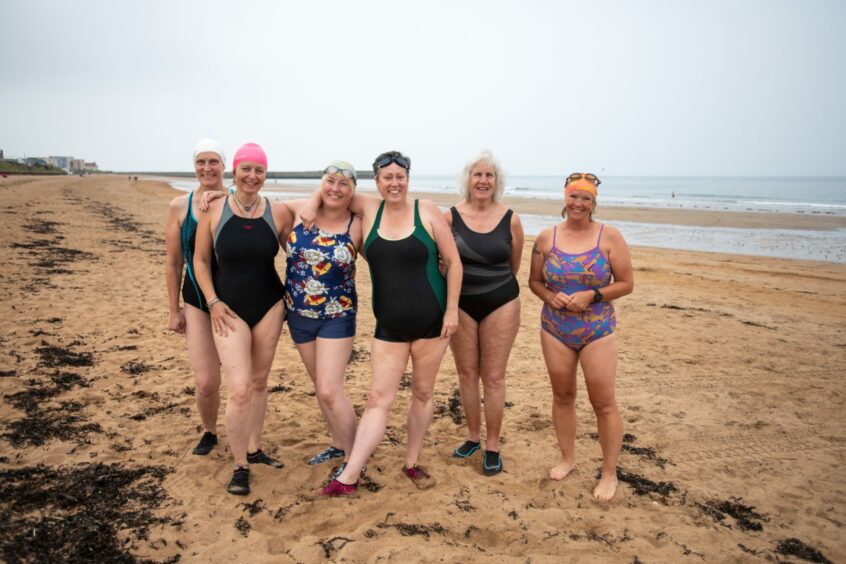
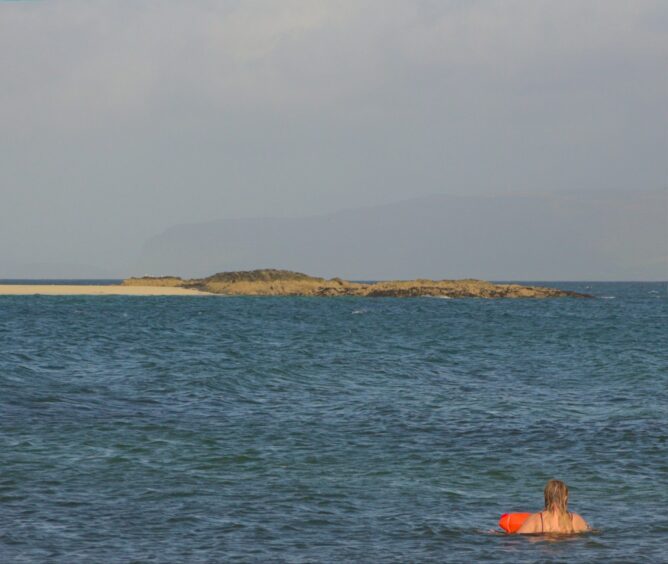
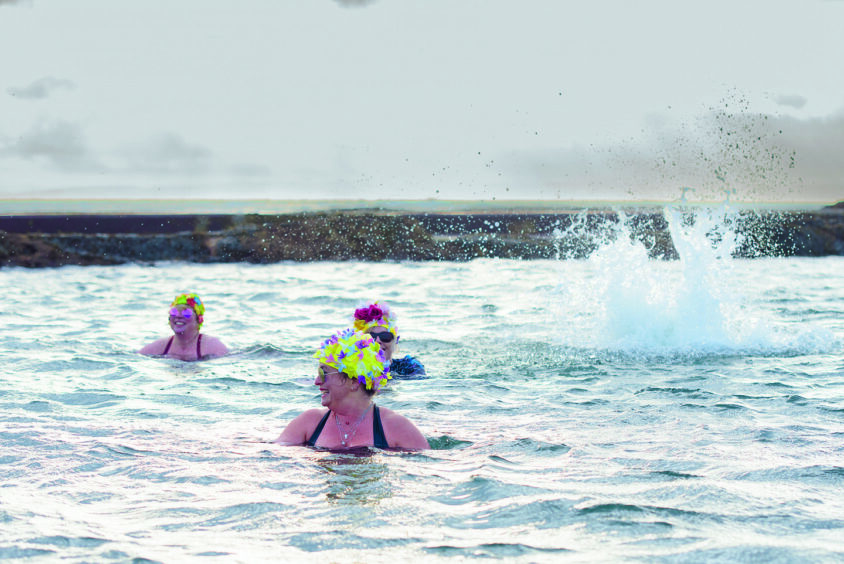










Conversation